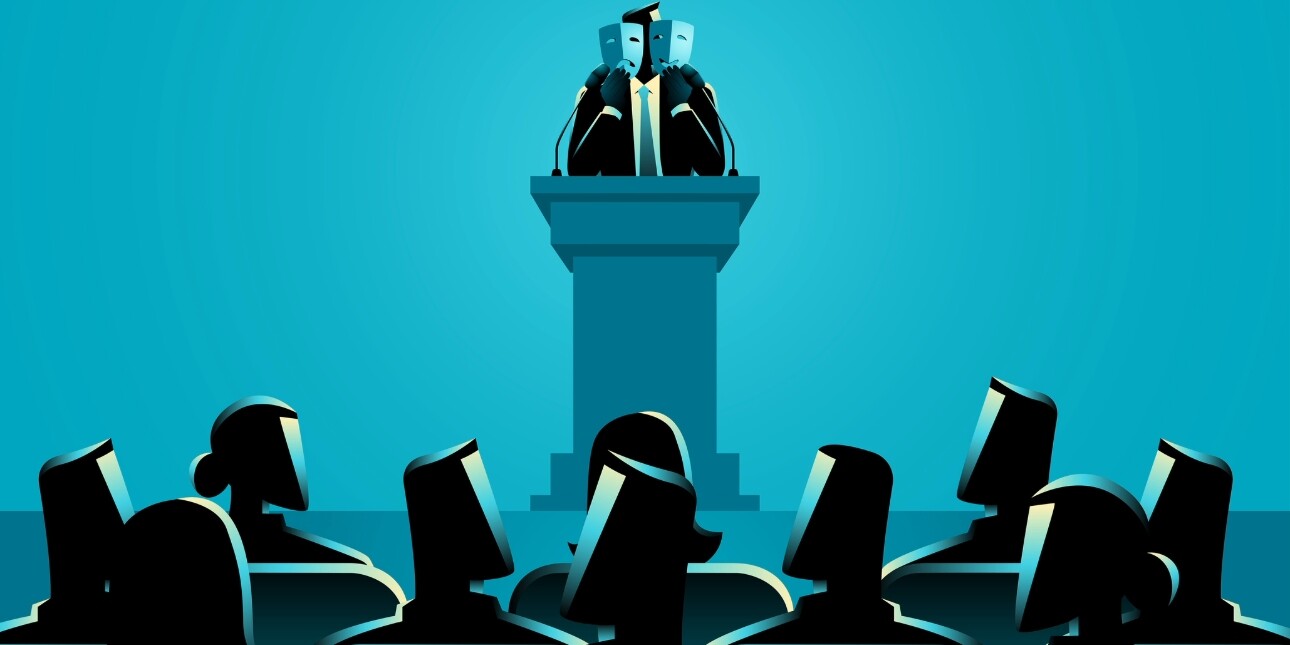Should leaders show emotion on the party conference stage?
Why do we expect our leaders to be unemotional? And why is a leader who restricts their emotions perceived as better than someone who embraces their feelings?
The speeches are probably in their final drafts, the contingency plans will be in place, and the embargoed press releases are presumably ready to go. But as final preparations for the party political conferences continue apace, the one thing that can’t be pre-planned is the expression of human emotion.
If Rachel Reeves’s moment of emotion during prime minister’s questions earlier this year, and the media furore that followed, showed us anything, it’s that the media will be eagerly waiting to pounce on any nuance of human emotion.
Whether it’s Angela Rayner tearing up about teenage pregnancy in 2021, Kier Starmer letting his frustration proclaim “get a grip or get out of the way” the same year, or Ed Miliband choking up discussing his history in 2014, examples of our political leaders showing unscripted emotion at party political conferences do exist, but they’re few and far between. It’s a shame, and it seriously undermines our natural empathy as humans.
The question is: Why do we expect our leaders to be unemotional? And why is a leader who restricts their emotions perceived as better than someone who embraces their feelings and works with them?
Surely, it’s better for a leader to know themselves, embrace their emotions, and demonstrate that they’re handling everything they need to, than to remain aloof at all times. Emotion is a marker of concern and attention; if nothing else, it’s reassuring to know that they actually care.
Vulnerability and modern leadership
There’s something innately human about the belief that a person who appears stoic and in control of their emotions is a suitable leader. Conversely, some perceive those who wear their heart on their sleeve as less stable or credible as leaders. But vulnerability is a key characteristic of modern leadership – which means we all need to learn to be more open and honest about what we’re feeling.
As a species, we’re starting to understand that people are more than they seem to be. We’ve begun to embrace the idea that even when someone appears calm and measured, they have challenges to contend with under the surface. And when those issues bubble up and make someone visibly emotional, it doesn’t make them any less capable.
We see this in everyday leadership roles all the time. My immediate response is often emotional. But given a few minutes to experience that feeling, consider the issue, and come to a conclusion, I’ll return with a more pragmatic reaction that’s based on both emotion and logic. Allowing myself to feel is what helps me reach a more measured response.
Great leaders don’t think strategically about how and when they’re going to display emotion. They can be honest, real and raw about their feelings at any given moment. They know that an emotional peak may not be the best time to make decisions, but they also take ownership of how they feel and don’t shy away from sharing it. Showing vulnerability in this way can be very difficult, but it displays humanity and forges connections with others.
These traits are also universal among great speakers. Speakers explore their personal highs and lows, pitfalls and successes, creating a story that’s designed to evoke emotion. The best speakers stay attuned to their emotions when delivering their story, connecting with the audience through genuine feelings. Audiences seek out these speakers and stories as a way of finding inspiration and empathy.
Emotional connection
This is why the media circus around Rachel Reeves’s display of emotion in the summer was more than just unhelpful. It plays into the idea that emotional detachment is dignified and statesmanlike when, actually, emotions are what connect us. They’re what we need to empathise with others, build each other up, and thrive as a society. By modelling openness and vulnerability, our leaders can pave the way for an emotionally healthy society.
As humans, we want reassurance that those who are responsible for our government (and livelihoods) are dealing with important issues. And just as we expect politicians and public figures to take the lead, we should also expect this of our media outlets. By making public fodder for politicians’ emotions, we minimise the important issues and elevate normal emotional reactions to headline status. Which isn’t a good look when the UK is dealing with a mental health crisis.
The spotlight that shone on Rachel Reeves has also revealed society’s discomfort with seeing emotion from our leaders. While we’re moving on in our understanding of emotional and mental health, it’s not easy to keep that knowledge front and centre when confronted with a visibly upset public figure. Instead, we revert to our stereotypical belief that someone who displays emotion isn’t in control. And this simply isn’t the case.
Reeves ultimately took unapologetic ownership of her emotion that day, refusing to give in to media speculation and continuing to do her job. Anyone who’s going through a tricky time or dealing with mental issues can take solace in both the emotion and the composure shown by the chancellor.
It’s unclear whether this year’s party political conferences will feature displays of raw human emotion, but the next time we find ourselves unsettled by someone else’s emotional expression, we should take a moment before passing judgment. Their willingness to openly show vulnerability shouldn’t be mocked, but instead should be respected, appreciated and, ultimately, understood.

Nick Gold is the owner and managing director of Speakers Corner, a market-leading speaker bureau and consultancy with a portfolio of over 6,500 speakers. He is also a director of Speaking Office, a bespoke management company for speakers and artists, and the founder of Future Voices.
Read more
Seven steps to making new networking connections at party conferences

